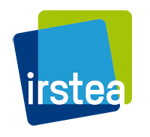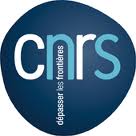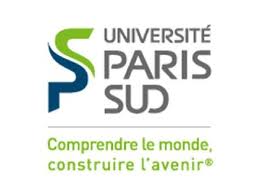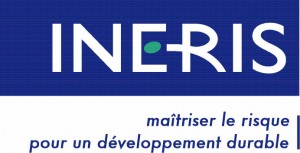Irstea
To better reflect its missions, Cemagref adopts a new name : Irstea, “National Research Institute of Science and Technology for Environment and Agriculture”.
Irstea is a research organization which, since more than 30 years, works on major issues of a responsible agriculture and territories sustainable planning, water management and related risks, drought, floods, inundations, the biodiversity and complex ecosystems study in their interrelation with human activities.
Irstea employs 1,650 people made up of 9 regional divisions.
The research and public policy support activities at Lyon concern the field of water. The center of Lyon is divided in two research unit.
-
Hydrology – Hydraulics (HHLY)
The research unit MALY seeks to provide operational responses to diagnose pollution, especially toxic pollution, and disturbances resulting from hydraulic structures or river facilities. This research is tackled at various spatial levels, ranging from the reach to the catchment area. The unit is also conducting research, appraisal work and technical support to improve the quality of aquatic environments and reduce discharge linked to human activities.
Teams involved in the ECHIBIOTEB project:
Its missions in the ECHIBIOTEB project:
-
Coordination of the projet
-
Organization of field campaigns (planning and carrying out)
-
Expertise in wastewater advanced treatment and sludge treatment
-
Expertise in chemical analysis of selected contaminants (hormones, beta-blockers, metals)
-
Expertise in water characterization (DOC, COD…) and sludge characterization (VM, DM…)
-
Expertise in use and analysis of integrative samplers (POCIS et SPMD)
-
Expertise in in vivo modified in situ bioassays on 3 organisms (gammarus, chironomus et potamopyrgus)
To know more about it:
Suez-Environnement
Natural resources are not infinite. SUEZ ENVIRONNEMENT and its subsidiaries deal daily with the challenge of protecting resources by providing innovative solutions to millions of people and to industry. Suez-Environnement is a private group which ranks among the world’s leaders in water and waste management services.
The CIRSEE (International Centre on Water and Environmental Research) created in 1981, is Suez Environnement’s main centre of expertise with more than 120 researchers, technical staff and experts working in environment-related areas.
Its missions in the ECHIBIOTEB project:
-
Organization of field campaigns (planning and carrying out)
-
Expertise in wastewater advanced treatment and sludge treatment
-
Expertise in chemical analysis of selected contaminants (pesticides…)
-
Expertise in water characterization (DOC, COD…) and sludge characterization (VM, DM…)
-
Expertise in non-target chemical analysis
To know more about it:
LPTC-EPOC
The laboratory of Physico- and Toxico-Chemistry of the environment (LPTC) has a long experience in the study of organic contaminants present in the environment.
Teams involved in the ECHIBIOTEB project:
-
Organic contaminants team
-
Environmental toxicology team
Its missions in the ECHIBIOTEB project:
-
Expertise in chemical analysis of selected contaminants (pestides, pharmaceuticals…)
-
Expertise in innovative methodology for non-target chemical analysis and to identify new compounds in wastewater and sludge
-
Expertise in biological analysis. Research of biologically active compounds in wastewater or in sludge by means of in vitro bioassays
-
Expertise in the improvement of the detection of toxic fractions by the EDA method (Effect-Directed Analysis)
-
Expertise in use and analysis of integrative samplers (POCIS et SPMD)
-
Expertise in in vivo modified in situ bioassays on fish embryos (médaka)
-
Expertise in in vivo bioassays performed in laboratory
To know more about it:
GSPE-UMR 8079
The public health – environment group focuses on the study of sanitary and environmental risks related to water pollution by mixtures of organic micropollutants.
Its missions in the ECHIBIOTEB project:
-
Expertise in in vitro biological tools for the evaluation of the disruptive effects of mixtures of organic micropollutants in wastewater on estrogen and thyroid receptors
-
Expertise in in vitro biological tools for the evaluation of the disruptive effects of mixtures of organic micropollutants in sluddge on estrogen and thyroid receptors
To know more about it:
INERIS
INERIS (French National Institute for Industrial Environment and Risks) founded in 1990, is an EPCIP (French public research body of an industrial and commercial character), under the aegis of the French Ministry for Ecology.
Teams involved in the ECHIBIOTEB project:
-
ECOT team (ecotoxicological risk assessment)
Its missions in the ECHIBIOTEB project:
-
Expertise in biological analysis. Research of biologically active compounds in wastewater or in sludge by means of in vitro bioassays (especially in the field of endocrine disruptors)
-
Expertise in in vivo bioassays performed in laboratory (molecular, biochemical and histological biomarkers)
To know more about it:
Envolure
Envolure is a young innovative company which was founded by Nathalie Pautremat and Yves Dudal early 2010. Envolure comes from 6 years of public research (2003-2009) at INRA (National Institute for Agronomic Research) in Avignon and later Montpellier in collaboration with the Molecular Chemistry Institute of the University of Reims and the Chemistry and Environment Lab of the University of Provence in Marseille.
Its missions in the ECHIBIOTEB project:
-
Measure of interactions of Dissolved Organic Matter (DOM) with selected organic micropollutants
-
Correlation between the above mentionned interactions and the micropollutant toxicity and their SPMD or POCIS-available fractions
To know more about it:








